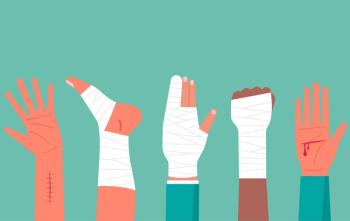
Reading First-Hand Stories May Help Reduce Suicidal Thoughts
Reading 1 story a day might help those living with suicidal thoughts and behaviors.
Can reading an online story a day by someone with lived experience managing suicidal thoughts reduce your patient’s suicidal thoughts and behaviors? New research says yes.
Investigators at Montefiore-Einstein, Harvard University, and The Mighty—an online community that connects people facing health challenges—challenged the notion that social media is harmful to mental health with their findings,
“What we’ve learned gives us a new line of attack in this long-standing public health crisis: an easy way to address key psychological factors, such as loneliness and hopelessness, that lead people to think about ending their lives,” said study lead Peter J. Franz, PhD, of Montefiore Medical Center. “It takes 10 minutes or less each day to read a story, yet digital narrative-based bibliotherapy makes a measurable difference, which may have a protective effect against suicidal thoughts and behaviors. This could be layered into complementary therapies. And it’s as highly scalable as the internet, able to reach millions of people simply and cost-effectively.”
Bibliotherapy is defined as “a therapeutic approach in which a planned reading program facilitates the recovery of patients living with mental illness or emotional disturbance.”2
The study involved 528 participants who were randomized to a treatment condition (n=266), in which they read 1 suicide narrative per day for 14 days, or to a waitlist control condition (n=262). The desire to commit suicide was assessed daily for the 14-day trial period and for 2 weeks after. Participants who received the bibliotherapy intervention reported modest but statistically significantly lower suicidal thoughts and behaviors. These benefits were explained in part by higher feelings of shared experience and optimism among those who read the stories.
Results were also highly repeatable. Members of the control group were subsequently offered bibliotherapy, and they also reported a significantly lower desire to commit suicide. Furthermore, participants who read narratives daily had less suicidal thoughts and behaviors than those who read sporadically.
“Bibliotherapy is well-established as a way to treat psychological distress, but this was the first randomized-controlled trial of digital narrative-based bibliotherapy for those struggling with suicidal thoughts and behaviors—and the first using content generated organically by users,” said Matt Nock, PhD, Chair of Harvard’s department of psychology. “This is a potentially important piece in the suicide-prevention puzzle. And, because mental health impacts overall health and vice-versa, these findings may be useful in addressing a broad range of conditions, particularly those involving feelings of isolation or hard-to-discuss subject matter.”
Although this research shows the power of reading stories online in helping people with suicidal thoughts and behaviors, future research could explore if this approach is effective in addressing other health issues shaped by similar factors.
“This study validates our belief that when people get the support and information they need, they’re better equipped to help improve health outcomes,” said Mike Porath, founder and CEO of The Mighty. “But it also signals where we go from here: If feelings of shared experience and optimism work for people with suicidal thoughts and behaviors, then digital bibliotherapy also may work for people with chronic pain, issues particularly relevant to the LGBTQIA+ community or any health challenge where isolation, stigma or the need for interaction are factors.This is only the beginning, and the possibilities are exciting.”
References
1. Franz PJ, Mou D, Kessler DT, et al.
2. Bibliotherapy. American Library Association. Accessed September 20, 2022.
Newsletter
Receive trusted psychiatric news, expert analysis, and clinical insights — subscribe today to support your practice and your patients.






